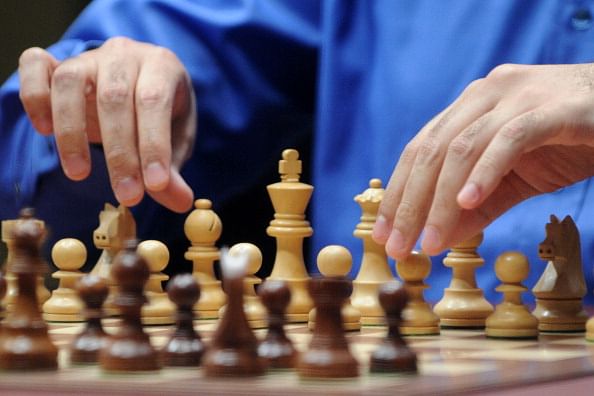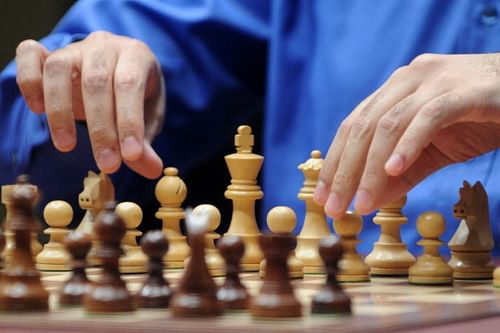
Will we have zero-tolerance rule at the Anand-Carlsen World Chess Championship 2013?

File Photo
Is the zero-tolerance rule going to be implemented at the Viswanathan Anand – Magnus Carlsen World Chess Championship in November, 2013? Would Carlsen forfeit any game if he forgets his way through the elevators, or would Anand forfeit a game if he gets late by a few minutes because of the traffic jam outside the Hyatt Regency, Chennai?
Interestingly, FIDE vice-president DV Sundar, has said, “Several things would get clearer once the world body announces the Chief Arbiter for the Viswanathan Anand – Magnus Carlsen World Chess Championship Match in November. The arbiter will have a meeting with both players before finalising two important points in the match regulations.”
“The arbiter has to decide whether agreed draws will be allowed before 30 moves (with exception of three-fold repetition etc) and whether zero-tolerance policy will be applicable about the starting time of the games,” Sundar said.
FIDE LAWS of CHESS
The FIDE Laws of Chess are evaluated every four years and updated if required. The latest set of laws of chess as of today came into effect on September 9, 2012 (including the law relating to the zero-tolerance rule that came into effect in 2009, without being updated in 2012):
6.7 a. Any player who arrives at the chessboard after the start of the session shall lose the game unless the arbiter decides to postpone the start of the game due to unforeseen circumstances. Thus the default time is 0 minutes. The rules of a competition may specify a different default time.
b. If the rules of a competition specify in advance a different default time, the following shall apply. If neither player is present initially, the player who has the white pieces shall lose all the time that elapses until he arrives, unless the rules of the competition specify or the arbiter decides otherwise.
The law first came into effect July 1st, 2009. A player who arrives just a few seconds late at his board, loses the game. At that time, the FIDE General Assembly actually could not come to an agreement on the zero-tolerance rule and, eventually, the Presidential Board decided to implement the rule.
Before 2009, the law stated
6.6 If neither player is present initially, the player who has the white pieces shall lose all the time that elapses until he arrives; unless the rules of the competition specify or the arbiter decides otherwise.
6.7 Any player who arrives at the chessboard more than one hour after the scheduled start of the session shall lose the game unless the rules of the competition specify or the arbiter decides otherwise.
The big difference between the two is the clause ‘or the arbiter decides otherwise‘ which was knocked off.
The criticism and some unfortunate instances
The zero-tolerance rule has ever since been criticised. Some organisers have implemented it way too strictly, an example being the recent the Chess World Cup in Tromso, Norway.-
The 2008 Dresden Olympiad witnessed eight forfeits due to the zero-tolerance rule.
Even former Women’s World Chess Champion Hou Yifan of China has suffered such a forfeit. Then, a 15-year-old only woman participant at the event, Yifan forfeited her game against Liang Chong in Round 8 of the Chinese Chess Championship, 2009.
Hou was in the hall, had filled out her scoresheet, but was not sitting at her board when the clock showed the starting time as 14:00:00h. She was late by five seconds.
At the same tournament, Ding Liren became the youngest Chinese Chess Champion with benefits coming through the zero-tolerance rule.
In March 2012, Grandmaster Mamedyarov was forfeited for arriving at the board 10 seconds after the officially stated start time at the at the European Chess Championship in Plovdov, Bulgaria.